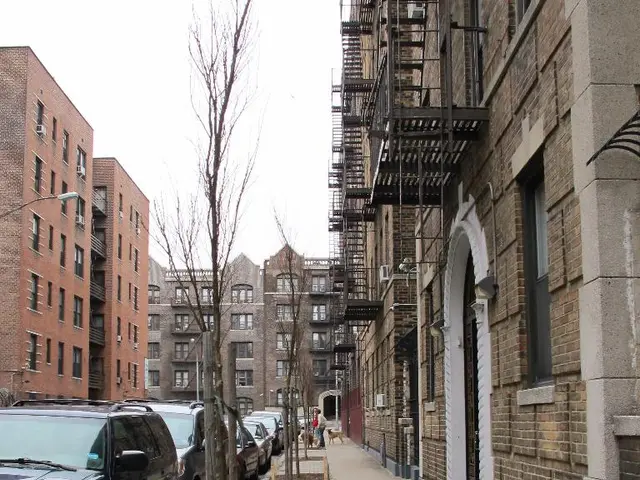Potential Pricing Threats to Minimum Fare Schemes by Uber and Competitors in Munich - Uber and similar companies set lowest price rates in Munich
Munich Declines Minimum Prices for Ride-Hailing Services
A proposed amendment to regulate ride-sharing services more strongly and empower municipalities as key regulators has been met with a surprising decision by the Munich city council. The council chose not to introduce minimum price regulations for app-based services like Uber and Bolt [1][3].
The amendment, aimed at introducing minimum prices for rides with Uber, Bolt, and other ride-hailing services in Munich, was designed to address the perceived unfair competition between these services and the traditional taxi industry. The applicants observed a "ruinous competition" in recent years, with ride-hailing services determining prices while the classic taxi industry is heavily regulated [2].
The proposed minimum prices were intended to contribute to fair competition conditions and the protection of the taxi industry. However, the city council's decision not to enforce these minimum prices has been met with criticism from several quarters. Thomas Mohnke, the chairman of the federal association, warned of significant price increases if minimum wages were introduced [4]. Gregor Beiner from Munich Taxi Association criticized Lord Mayor Dieter Reiter (SPD) for not supporting the application [5].
The taxi association has labelled the mayor as "Reiter," the "Uber-Mayor" [6]. In protest, Munich's taxi centers suspended telephone dispatch for an hour on Tuesday morning, and numerous drivers gathered noisily on Marienplatz in front of the town hall, some with their taxis [7].
Despite the decision, the city council still has the chance to make a decision regarding the application. The SPD and CSU factions plan to submit an amendment proposal for minimum wages and prices, maximum prices, and minimum wages for drivers [8]. The federal association firmly rejects such minimum wages, warning that it could lead to job losses and some companies leaving the market [4].
It is worth noting that the proposed amendment also called for a publication obligation for individual parameters to increase transparency in ride-hailing service fare costs [1]. This transparency measure remains a significant aspect of the proposed regulation, even though the minimum price regulations were not enforced.
In summary, the decision not to introduce minimum prices for ride-hailing services in Munich departs from the intended strengthening of municipal regulatory powers in the amendment. The consequences of this decision for the local transport market and the ongoing debate about fair competition between ride-hailing services and the traditional taxi industry remain to be seen.
The city council's decision not to enforce minimum prices for ride-hailing services in Munich may impact future discussions regarding community and employment policies. For instance, the SPD and CSU factions might amend existing employment policies to include minimum wages and maximum prices for ride-hailing services and drivers, aiming to foster a more equitable employment environment. Additionally, the challenge of balancing financial considerations while ensuring fair competition among ride-hailing services and the traditional taxi industry could be a significant focus in future municipal finance discussions.




